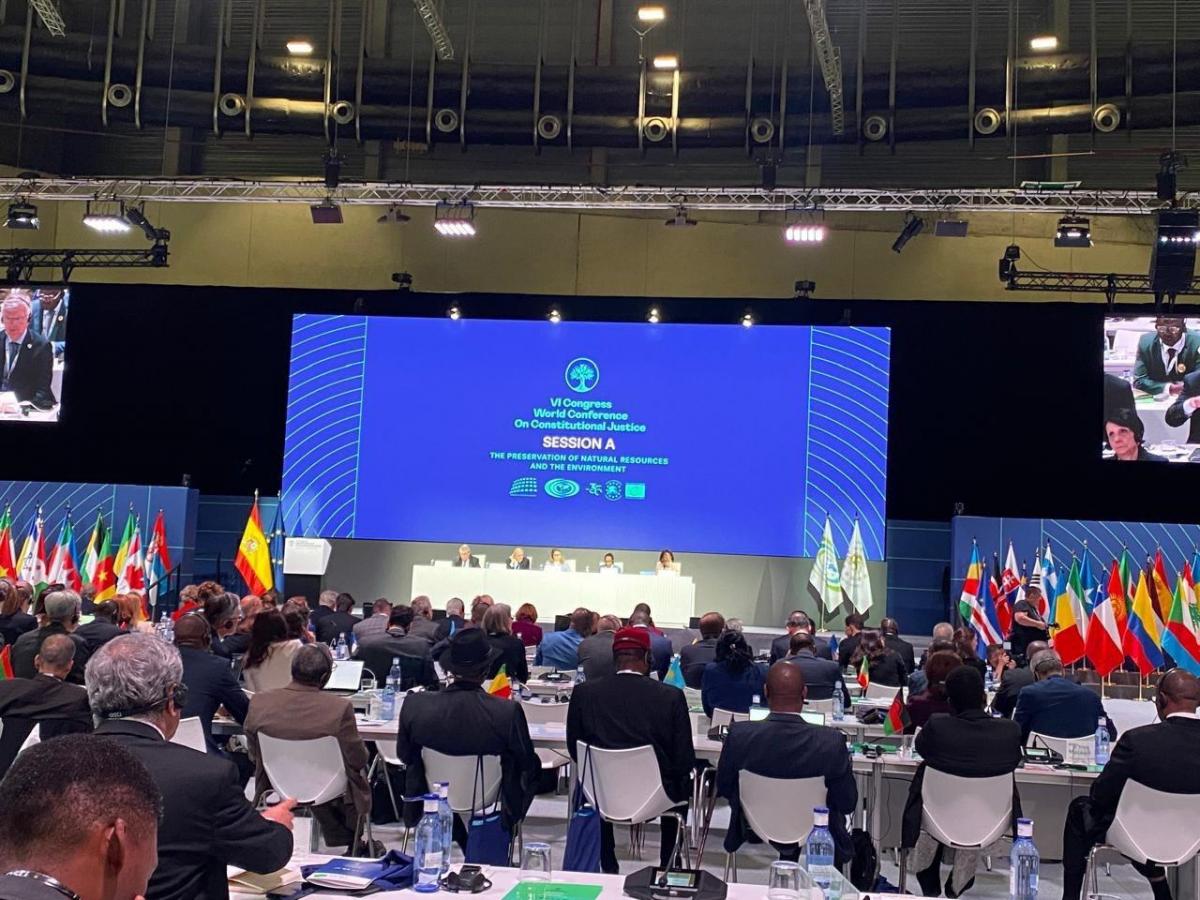Judge of the Constitutional Court Olga Sovgyria moderated the session of the VI Congress World of the Conference on Constitutional Justice
5 November 2025
On 29 October 2025, the VI Congress of the World Conference on Constitutional Justice was opened and three sessions were held.
The inauguration of the Congress was accompanied by video messages from leading international lawyers: Koen Lenaerts, President of the Court of Justice of the European Union; Sacko Modibo, President of the African Court on Human and People’s Rights; Nancy Hernández López, President of the InterAmerican Court of Human Rights; and Mattias Guyomar, President of the European Court of Human Rights. The participants were welcomed by Félix Bolaños García, Minister for the Presidency, Justice and Parliamentary Relations of Spain, Gianni Buquicchio, Special Representative, President Emeritus of the Venice Commission of the Council of Europe, and Cándido Conde-Pumpido Tourón, President of the Constitutional Court of Spain.
The first session, devoted to the preservation of natural resources and the environment, was moderated by Olga Sovgyria, judge of the Constitutional Court of Ukraine.
Opening the event, Olga Sovgyria emphasised that the Congress is a landmark event in global constitutionalism, which is important for strengthening international cooperation and provides impetus for achieving environmental justice not only between different states, but also between present and future generations: “While state policy may be guided by considerations of economic benefit today, for constitutional courts, human rights carry more weight than the voice of the electorate. After all, environmental rights are a strategy for all of humanity, not a tactic for individual states.”
The judge emphasised that the theme of the Congress session is particularly relevant to the negative environmental consequences of armed conflicts: “The war for Ukraine's independence is not only destroying cities and claiming countless lives, but is also catastrophic for the environment: forests and fields have been burned, some species of animals and plants are on the verge of extinction, soil and water are polluted.” The threat of radiation danger associated with the Russian Federation's seizure of the Zaporizhzhia nuclear power plant, the mining of about 150,000 square kilometres of land and water territory of Ukraine, and the ecocide caused by Russia's destruction of the Kakhovka hydroelectric power plant – the burden of negative consequences for the environment in connection with the war goes far beyond Ukraine's borders and will have a significant impact on the global environmental situation in the future.
In her report, Olga Sovgyria analysed international legal regulation in the field of environmental protection, focusing in detail on the latest experience of constitutional courts, in particular in Germany, Korea, Mexico, Italy, Spain and France, and emphasised that the practice of ensuring and protecting the right to a healthy environment in constitutional proceedings is showing positive dynamics throughout the world: “A comparative analysis confirms that intergenerational responsibility, the dependence of human rights on the state of the environment, and the need to take into account the negative consequences for the environment when planning economic growth are the arguments that guide constitutional proceedings when considering environmental cases.”
Finally, the judge emphasised that the issue of preserving natural resources and the environment is equally important for each of us: “As representatives of constitutional courts, we have not only a moral but also a judicial duty to leave behind a world in which future generations can live with dignity and freedom. Therefore, today the role of constitutional courts is to ensure the right of future generations to be heard. The preservation of the environment and an ecologically sustainable future for all of humanity depends on how effective and efficient constitutional courts are now.”
Along with the judge from the Constitutional Court of Ukraine, the following speakers addressed the first session of the Congress: Marco D'Alberti, Judge of the Constitutional Court of Italy, César Tolosa Tribiño, Judge of the Constitutional Court of Spain, Mandisa Maya, President of the Constitutional Court of South Africa, and Laurinda Jacinto Prazeres, President of the Constitutional Court of Angola.
Closing the session, Olga Sovgyria emphasised the role of constitutional courts in maintaining a just international legal order, protecting the values of the democratic world, establishing peace and ensuring the sustainable development of all states, and reminded the whole world of the courageous Ukrainian people, who are resisting the armed aggression of the Russian Federation on a daily basis: “Thanks to the heroes who gave their lives in the war for Ukraine's independence, as well as those who continue this struggle on the battlefield, Ukraine has a chance for a bright future.” The judge also expressed her gratitude to the delegates of the states for their support of Ukraine and congratulated the Constitutional Court of Spain on the 45th anniversary of its establishment.
The second session was devoted to issues related to the preservation of humankind’s cultural heritage. The session was moderated by María Luisa Segoviano, Justice of the Constitutional Court of Spain. The speakers were Kadir Özkaya, President of the Constitutional Court of the Republic of Türkiye, Army Ferreira, Judge of the Constitutional Court of the Dominican Republic. The discussion involved Abdelhafid Oussoukin, Judge of the Constitutional Court of Algeria.
During this session, Judge Galyna Yurovska of the Constitutional Court of Ukraine joined the discussion of the issues outlined, noting in particular:
“This issue is extremely painful for Ukraine, as the armed forces of the Russian Federation are deliberately destroying our national cultural heritage.
According to the government portal, between February 2022 and December 2023, 872 cultural heritage sites were destroyed or damaged in Ukraine: 120 monuments of national importance, 682 monuments of local importance and 70 newly discovered cultural heritage sites. This destruction is a blow to national identity and collective memory.
The protection of cultural property, even in wartime, is defined by a number of conventions. However, the occupying forces constantly ignore these obligations.
More than 700 religious buildings and places of worship (Orthodox, Catholic, Muslim, Jewish, Protestant) have been destroyed. Ukraine's experience is similar to that of many countries participating in this event.
Today, Ukraine is at the forefront of this struggle, defending not only its territory but also the universal principle that cultural heritage belongs to all of humanity. In this context, constitutional justice plays a crucial role in ensuring that the protection of heritage remains enshrined in law even when its existence is threatened.
By affirming the constitutional value of culture, protecting property rights while taking public interests into account, and adhering to international standards, courts can transform the protection of cultural heritage from a moral imperative into a binding constitutional duty.
This approach, based on Ukraine's painful experience, can serve as a model of how constitutional justice contributes to the preservation of human civilisation in times of war.”
Access to scientific knowledge and new technologies was discussed during the third session, moderated by Jorge Ibañez Najar, President of the Constitutional Court of Colombia. The speakers were Irēna Kucina, President of the Constitutional Court of Latvia, and Lúcia da Luz Ribeiro, President of the Constitutional Court of Mozambique. The discussion involved Elena Simina Tănăsescu, President of the Constitutional Court of Romania.
Irēna Kucina, President of the Constitutional Court of Latvia, emphasised that the digital future, which was only anticipated, is already shaping our present. Therefore, there is now a need for legal clarification of access to the internet, which directly affects the implementation of a number of fundamental rights – the right to property, education, freedom of employment and others.
On the same day, working meetings were held between the delegation of the Constitutional Court of Ukraine and the Chief Justice of the Supreme Court of Estonia, Villu Kõve, the President of the Venice Commission, Claire Bazy-Malaurie, and the Secretary of the Venice Commission, Simona Granata-Menghini.
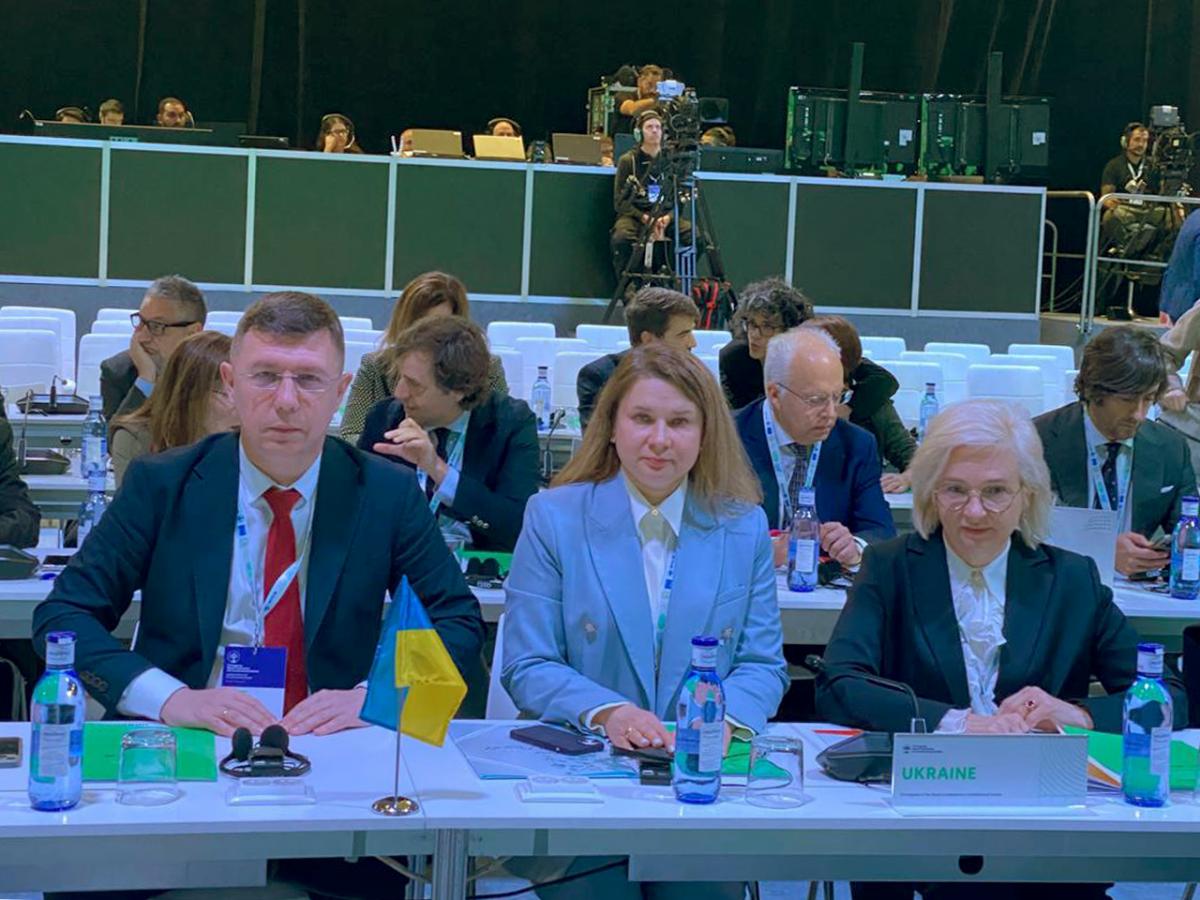
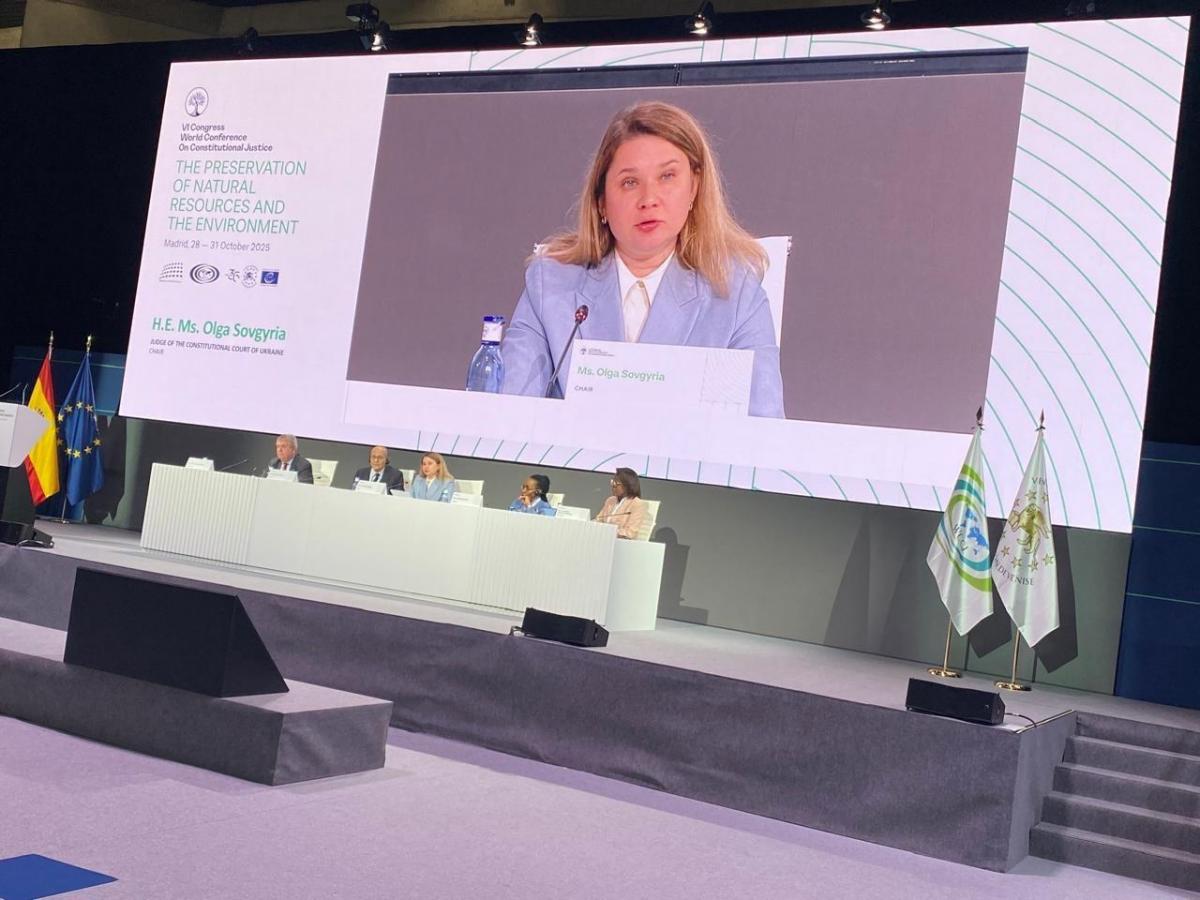
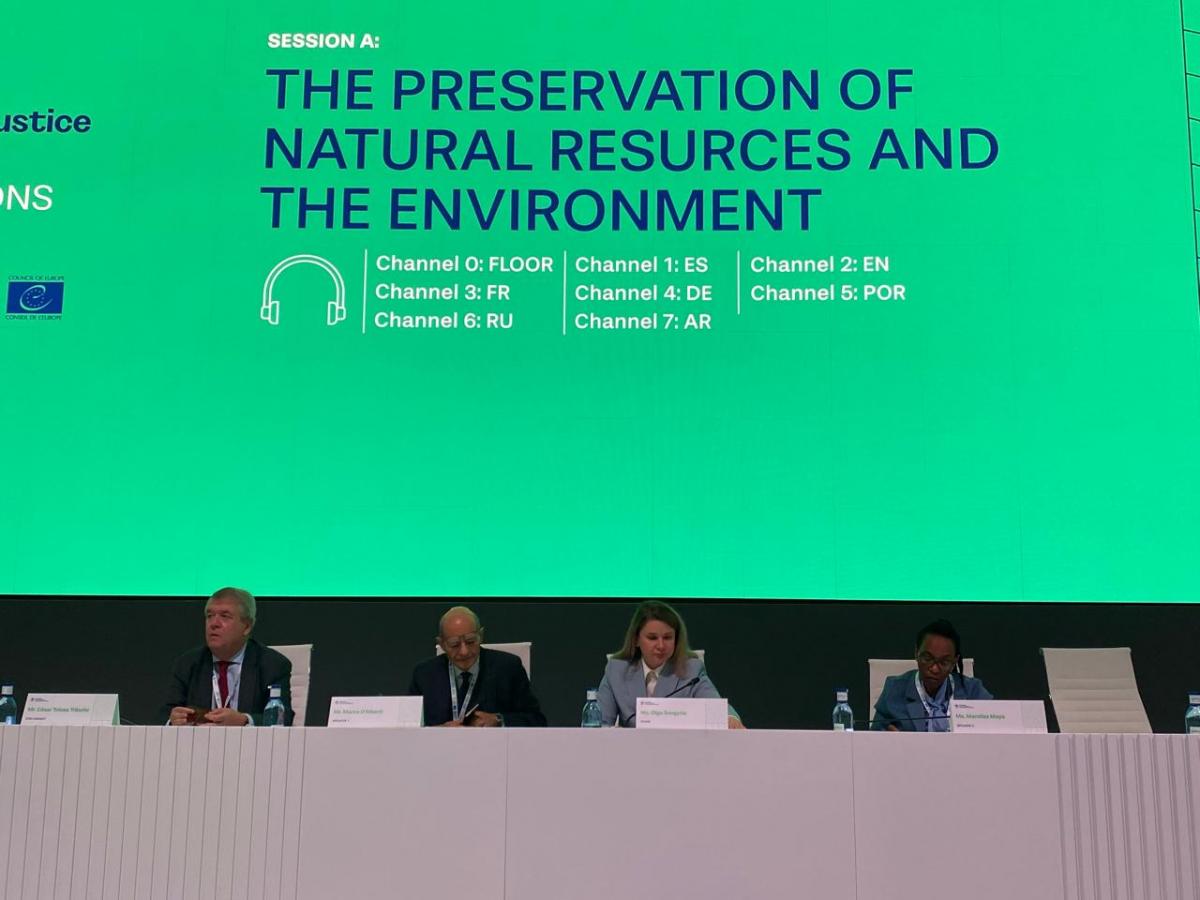
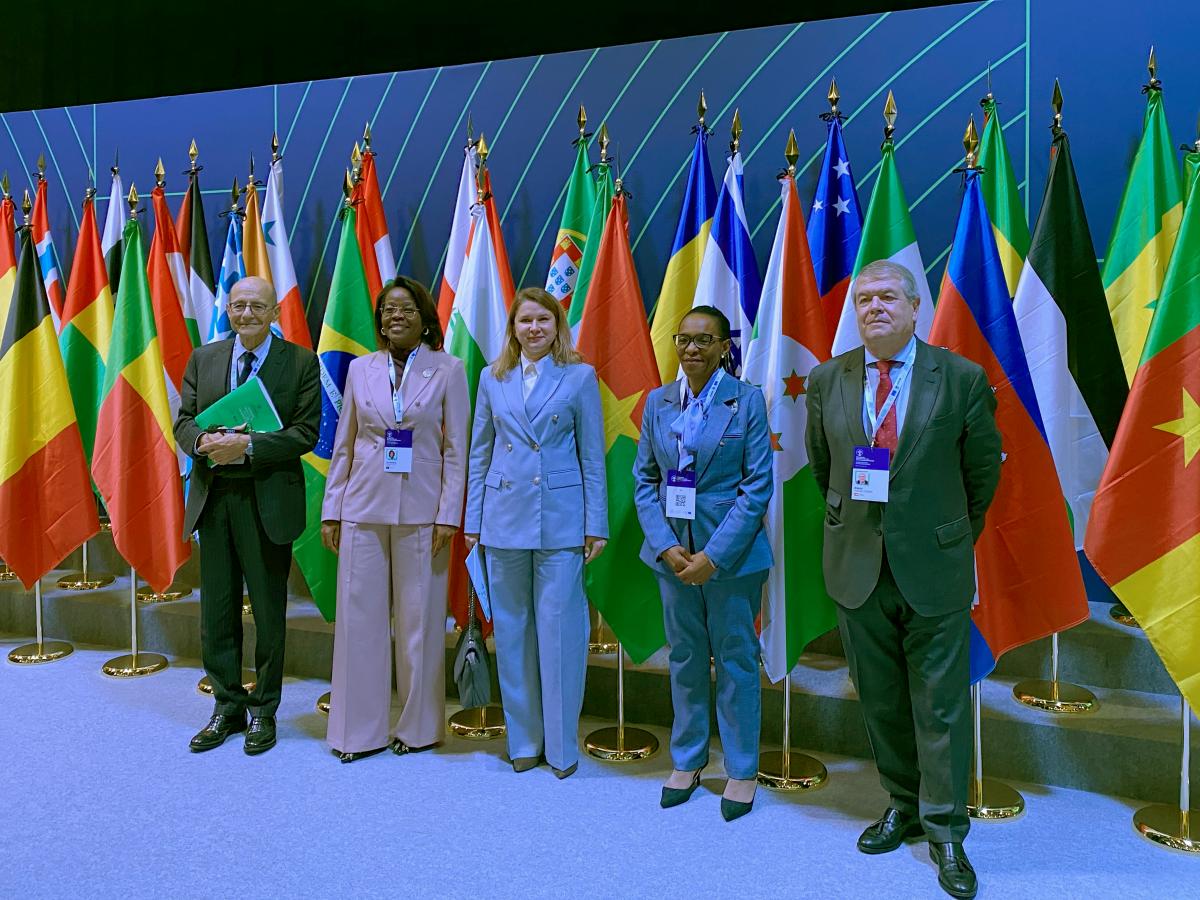
Olga Sovgyria, Judge of the Constitutional Court of Ukraine, Mandisa Maya, President of the Constitutional Court of South Africa,
César Tolosa Tribiño, Judge of the Constitutional Court of Spain(participants of the first session)
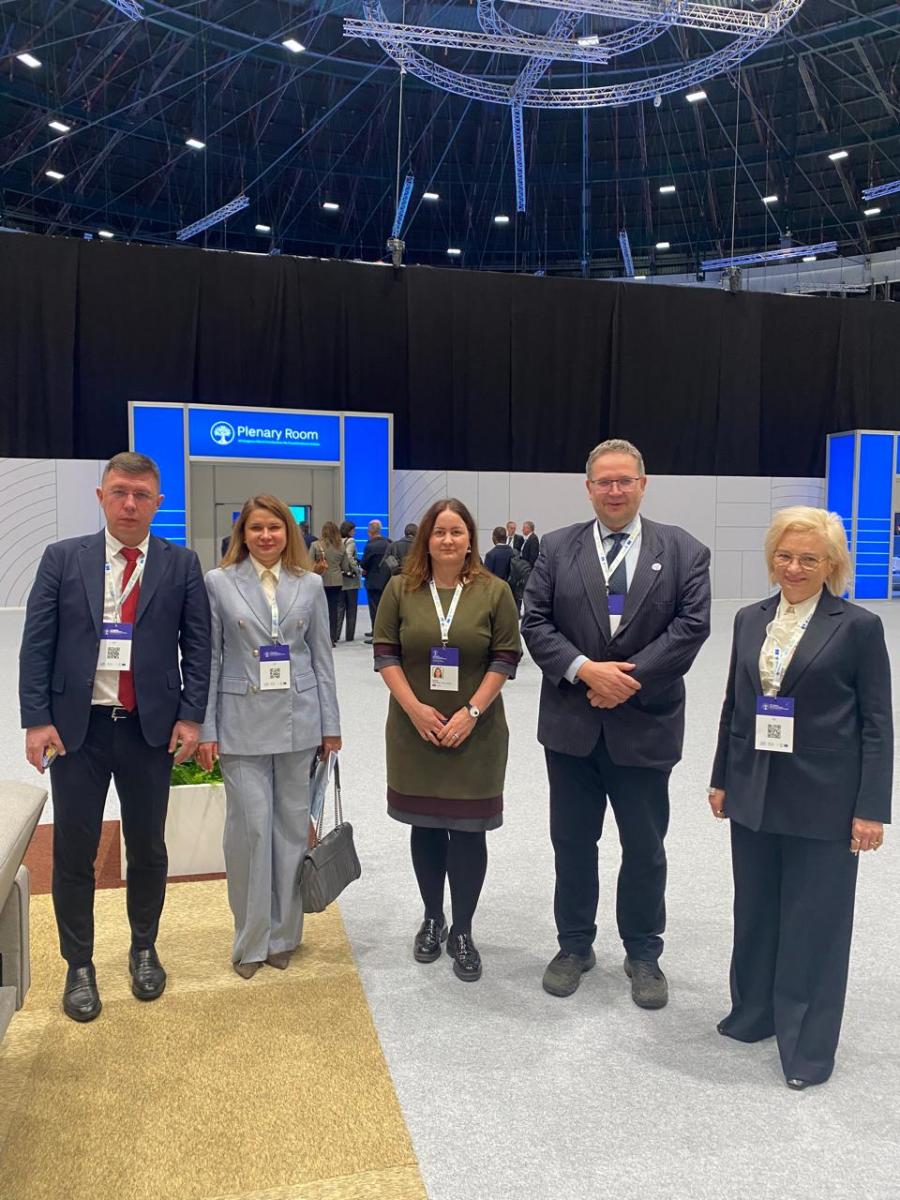
Legal Adviser to the Chief Justice of the Supreme Court of Estonia Karin Lechter-Tamisto,
Chief Justice of the Supreme Court of Estonia Villu Kõve,
Judge of the Constitutional Court of Ukraine Galyna Yurovska (head of delegation)
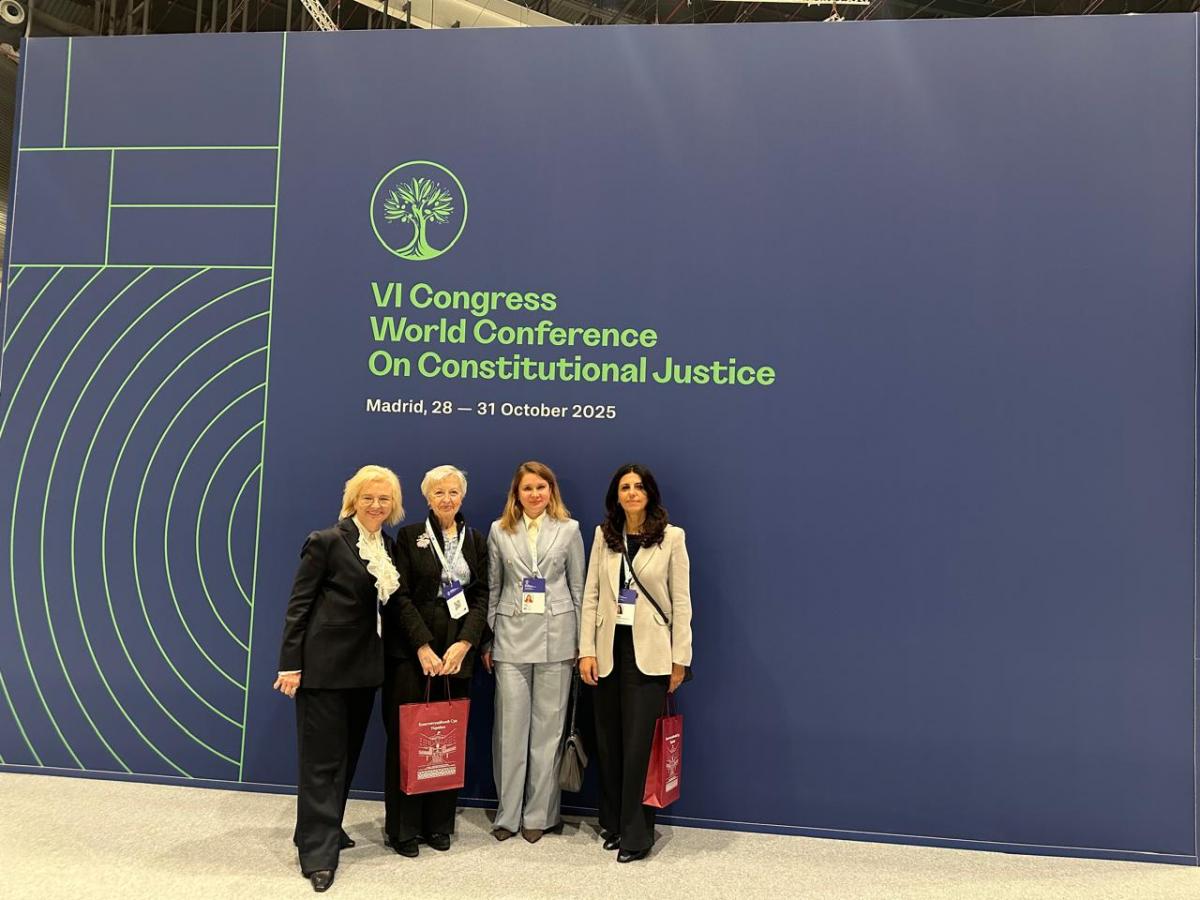
President of the Venice Commission Claire Bazy-Malaurie,
Judge of the Constitutional Court of Ukraine Olga Sovgyria,
Secretary of the Venice Commission Simona Granata-Menghini.

